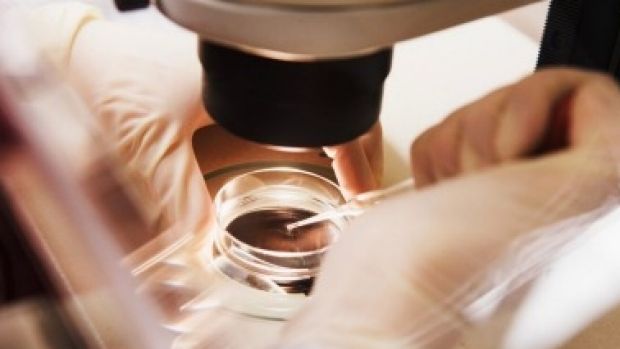
Limits changed: An IVF embryo.
A 10-year limit on storing frozen embryos created using donor sperm has been dropped by the NSW government, after complaints the deadline distressed couples and forced clinics to unnecessarily destroy embryos.
Women who had embryos in storage when the law came into effect in 2010 will now be exempt from time limits.
The regulation change by Health Minister Jillian Skinner will also extend the storage limits for frozen sperm from 10 to 15 years.
IVF Australia medical director Peter Ellingsworth said the 10-year storage limit was “totally arbitrary”, and every year the clinic sent letters to the health department on behalf of families to request an extension.
“No one should be forced to discard embryos because a time limit has passed. There is no moral or ethical reason for it,” he said.
The clock started ticking under the law from the time sperm was donated, not when the embryo was created, catching many patients off-guard, said University of Technology researcher, Jenni Millbank, who surveyed 350 women.
“There was massive confusion. People would be halfway through their IVF cycles and the clinic was saying ‘oh no, you can’t use it’. They were incredibly distressed about it.”
Fertility First medical director Ann Clark said the clinic had been forced to discard embryos “for no medical reason at all” to comply with the law.
“It affected family spacing. People want two to three children. If you get breast cancer, you have to wait until your five-year survival rates are up before starting another treatment,” she said.
Fertility First patient Jessica, 34, gave birth to her first child this year using an embryo she had frozen “some years ago”.
She had to write to the Department of Health to request an extension of the time limit to use the embryo in her treatment.
“It felt a bit rough to plead for something that was my own human tissue,” she said. She has welcomed the law change, and hopes to expand her family again in the future.
Of 70,000 IVF cycles conducted in Australia in 2012, a third used frozen embryos, and 2283 used donated sperm.
There are more than 120,000 frozen embryos in storage nationally, with couples typically charged $300 a year in storage fees.
Fertility First head of lab Julie Zieschang said the law change was fantastic news, but she believed it was unfair that families who created embryos after 2010 should face different rules.
Ms Millbank said couples undergoing fertility treatment should be able to choose their own timelines for completing families.
